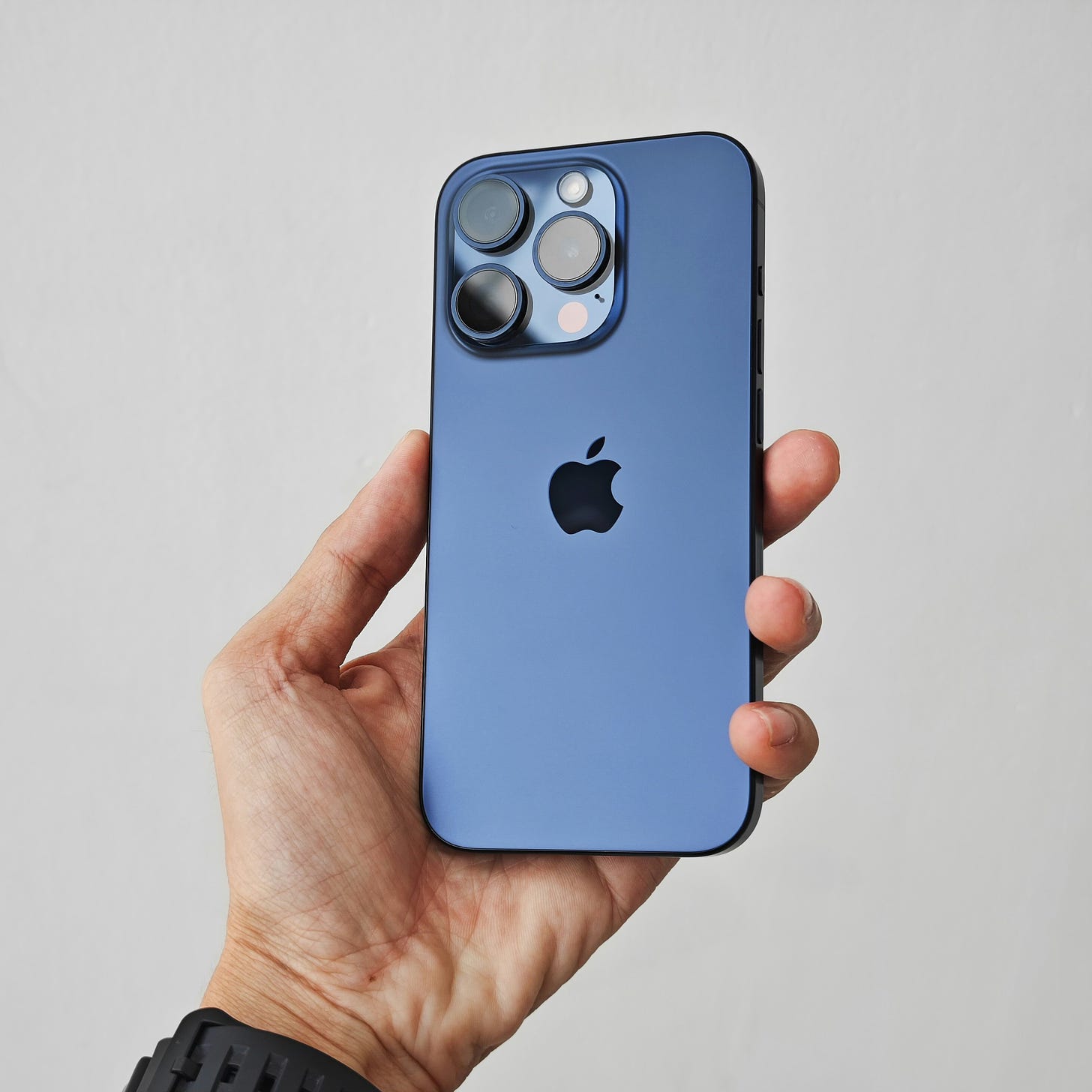The U.S. Government Wants To Determine Your Smartphone Functionality, and More AI Updates
Is Apple the new Microsoft circa 1998?

“Bigness is not badness.” It’s a phrase that has lived with me since my antitrust course in law school. The U.S. government cannot punish a company simply for being big and successful. But in effect, it’s what they’re doing in their recent antitrust lawsuit against Apple.
Instead of empowering consumers to decide Apple’s fate in the smartphone market, the U.S. government wants to determine your smartphone functionality. Down to the way Apple configures your SMS messaging with those pesky green-bubbled Android people.
The U.S. Department of Justice (DOJ) wants you to think Apple is Microsoft reincarnated circa 1998. I know the Biden administration wants to score election-year points against big corporations, but Apple’s 65% market share compared to Microsoft’s 90% plus market share in the 1990s is not equivalent.
Why not close the carried interest loophole? Or prevent guys like Warren Buffett from paying lower tax rates than their secretaries?
Nope, instead the DOJ is targeting one of the greatest American businesses of all time, with no smoking gun. I would understand if price fixing, territorial allocation, or some other blatantly obvious anticompetitive behavior were present, but there’s no evidence of the sort against Apple.
“By applying the same playbook of restrictions to CarPlay, Apple further locks-in the power of the iPhone by preventing the development of other disintermediating technologies that interoperate with the phone but reside off device.”
Seriously? Was Apple CarPlay the anticompetitive straw that broke the DOJ’s back?
Look, I’m not here to argue the government should not hold Apple’s feet to the fire. They should. But 88-page antitrust lawsuits are not the way to do it, especially when they could destroy Apple’s business and prevent it from capitalizing on the next big thing (artificial intelligence!), similar to how Microsoft missed much of the early internet and mobile innovations after their antitrust litigation.
Apple is not Microsoft circa 1998. Below are the four main reasons why. We’ll conclude with why this lawsuit was brought now and what the government should have considered instead.
For the entire article, read here for free at polispandit.com.
Important artificial intelligence news
Here’s why many people are concerned that Apple is falling behind in the AI race: Apple in talks to use OpenAI or Gemini in iPhone - they can’t even build their own AI engine into their phones? This is coming from a company that has always built its software. Good news for OpenAI and Google. Not so great if you’re an Apple investor, especially in light of the antitrust lawsuit discussed above.
Elon Musk may be an unstable genius, but this latest development from Neuralink, where a guy is playing chess through a chip implanted in his head is unreal. The patient is a paralyzed man who’s been working with one of Elon’s (many) companies, Neuralink, to learn how to use the chip to control a computer. The possibilities this could present for the future are seemingly unlimited. But would you put a chip in your brain?
Microsoft is arguably far out front in the AI lead. And I’m not talking about their ownership stake in OpenAI. This past week they hired Mustafa Suleyman, a British AI pioneer and former DeepMind founder (which Google bought in 2014). He’s taking on a new role at Microsoft as Head of AI. Off to the races.
Have a good week.



